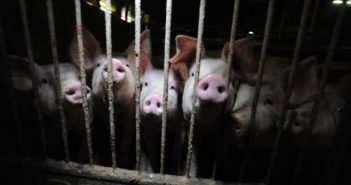
3 Big Changes We Need in the Farmed Animal Movement
It’s time for a shift in strategy. The Sentience Institute makes three concrete, evidence-based recommendations on how to make the farmed animal movement more effective.

It’s time for a shift in strategy. The Sentience Institute makes three concrete, evidence-based recommendations on how to make the farmed animal movement more effective.
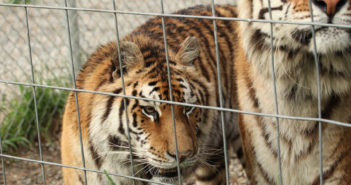
The public must have access to the USDA’s animal welfare records. This transparency is not only critically important for protecting animals, but is required by the law and necessary to hold government agencies accountable

Going (and staying) vegan just got a lot easier.
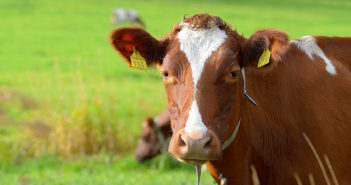
Missouri has passed a law that prohibits many products, including plant-based and cellular meat, from identifying themselves as “meat.” It’s clear the law is designed to protect the animal agriculture industry.

Raha was badly injured by people who taped his mouth shut around fireworks and lit them. His story is one of horrible cruelty, but it’s also one of generous volunteers all over the world pulling together to help him, and of Raha’s beautiful ability to trust and love humans even after he was harmed so badly.

In October, a historic bill banning the use of exotic animals in circuses was passed by both the New Jersey State Assembly and the New Jersey State Senate. That only leaves one final hurdle to turn the bill into law: the governor’s signature. Please sign this petition asking New Jersey governor Phil Murphy to sign the circus ban into law.

When beloved and healthy dog Chloe died due to medical negligence, it became obvious that the law saw her as replaceable property, not family. The #notproperty campaign calls for animals’ legal status to match their actual status — not as property, but as thinking, feeling beings who have intrinsic value, not just economic value, and who need and deserve that recognition in the law.

For four years now, the USFWS has been dismantling one of the most successful predator reintroductions in U.S. history, that of the world’s only wild population of red wolves, in North Carolina. This decision by the court to protect red wolves from being shot and killed offers a glimmer of hope for species recovery.
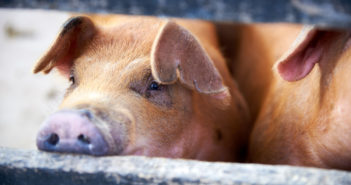
Not only is it ethically unjustifiable, using live animals to teach human medicine is simply an irresponsible, substandard practice. When nearly all other programs use human-relevant training methods, it’s time to step into the 21st century and move beyond the crude practice of using animals.
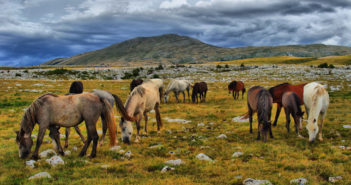
A new plan by a U.S. federal agency puts as many as 1,000 wild horses in California at risk, by removing legal protections from slaughter and now allowing the horses to be sold “without limitation.” These wild horses deserve better than being forcibly removed from their home, only to be slaughtered and eaten.

There is an undeniable link between animal cruelty and family violence. This one-of-a-kind partnership will be an opportunity to educate juvenile and family court judges in the United States on addressing and recognizing animal cruelty in order to help children, families, and pets who have experienced violence.

The Oregon Zoo tops the list due to the use of bullhooks, unethical breeding practices, and animal welfare violations. One elephant named Chendra has been shunned by the others and walks in circles all day. Exploitation of these sensitive, emotional, and intelligent animals must stop!